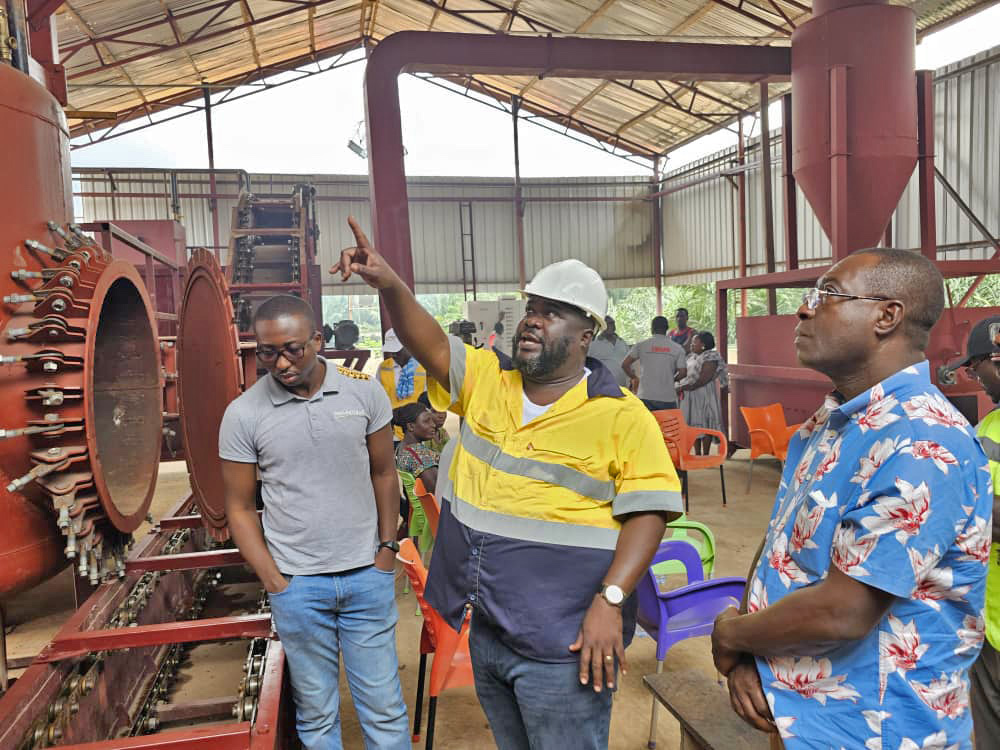Discussing how how upgrades to palm oil processing equipment will bring improvements to artisanal mills in Ghana.
Palm oil processing in Ghana is dominated by small-scale operations, with over 1,000 artisanal processing centres scattered across the country. These centres often use outdated technologies and techniques, leading to unsustainable energy use and methane emissions from poor waste management. Research indicates that methane emissions from palm oil mill effluent exceed 1.2 metric tonnes (mt) per metric tonne of crude palm oil produced.
The milling process also produces a sludge, palm oil mill effluent (POME), with a high biological and chemical oxygen demand that releases methane into the atmosphere. Solidaridad has designed the Sustainable Artisanal Palm Oil Processing programme to reduce emissions in Ghana by approximately 550,000 metric tonnes (mt) CO₂ equivalent by 2030.
Additionally, small-scale operations often use inefficient screw presses and delayed oil palm fruit processing. For energy, they also burn used tires and firewood under conditions that are inadequate for effective combustion. This generates excessive smoke and causes significant health and environmental issues.
The modernization programme in action
The initiative will modernize 85 artisanal palm oil processing centres in Ghana to:
- Reduce methane emissions from artisanal oil palm processing centres by integrating biogas systems to treat palm oil mill effluent and capture the produced methane for processing.
- Replace wood and used tires as fuelstock by using oil palm biomass to generate steam using a biomass boiler to improve energy generation.
- Improve working conditions for the oil palm processors to enhance health and safety.
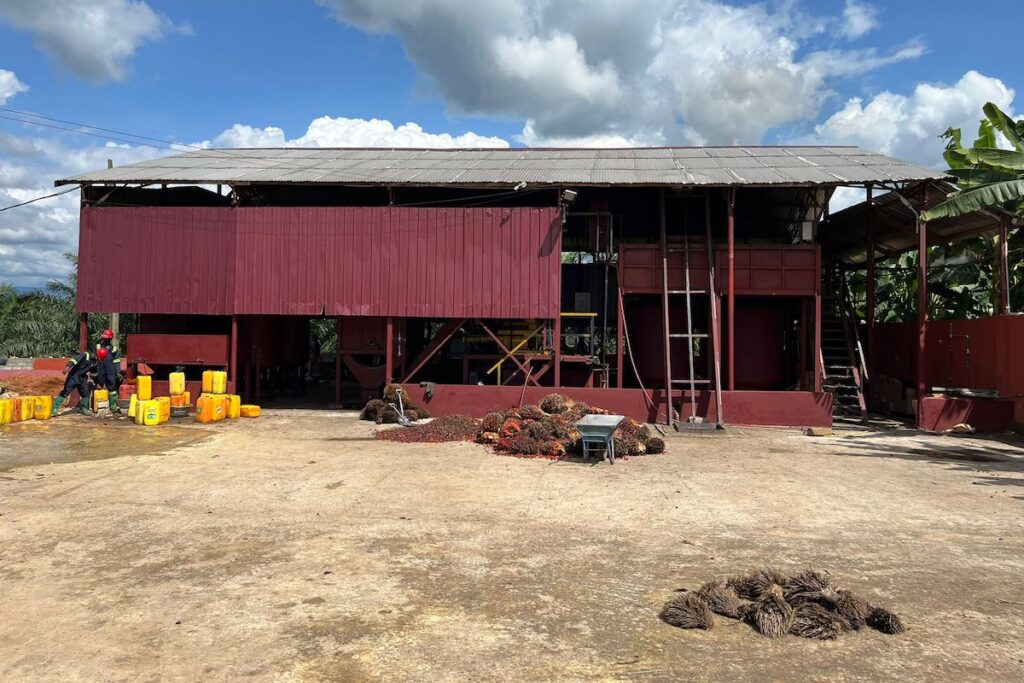
Innovation and technology
The technology to modernize the processing centres will include a biogas system to treat palm oil mill effluent by extracting methane gas. This gas will then be used in the further processing of the palm oil. The remaining waste, which meets the Ghana government’s Environmental Protection Authority’s standards, can be used as fertilizer.
Additionally, the technology features a biomass dryer that is equipped with a cyclone and rotary airlock unit for drying biomass, as well as a biomass boiler that uses oil palm biomass—such as fibre, empty fruit bunches, and palm kernel shells—to generate energy through closed combustion.
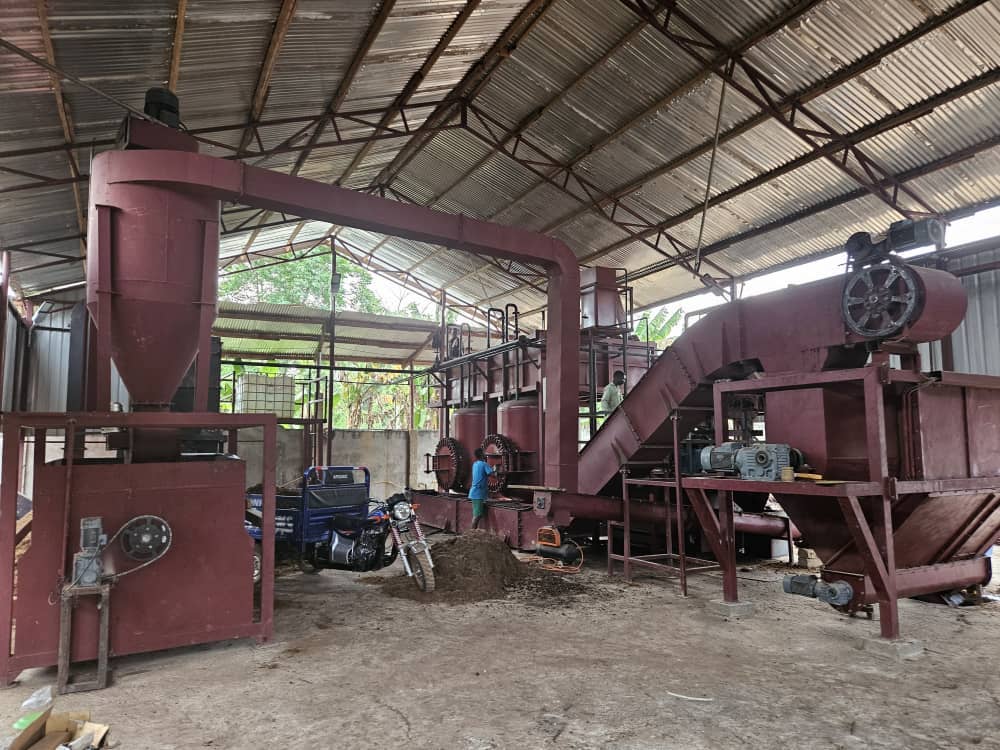
The new processing system also includes an upgraded and efficient press (capable of processing up to 3 metric tonnes per hour), a 3-tonne-per-hour nutcracker with winnowing sieves, and a fibre and nut separator to manage biomass.
Testing the upgrades
As a proof of concept, Solidaridad, under the National Initiatives for Sustainable and Climate-Smart Oil Palm Smallholders (NISCOPS) programme, and in partnership with the United Nations Development Programme (UNDP), upgraded two mills, Joe Farms and K. A. Hallelujah Oil Processing, located in the Eastern region of Ghana.
For these two mills, the upgrade provided a leading to a reduction in health and safety mishaps. Second, oil extraction rates were boosted over 18 percent, resulting in increased income for the processors. Finally, POME was converted into methane gas using biogas technology, leading to emission reduction.
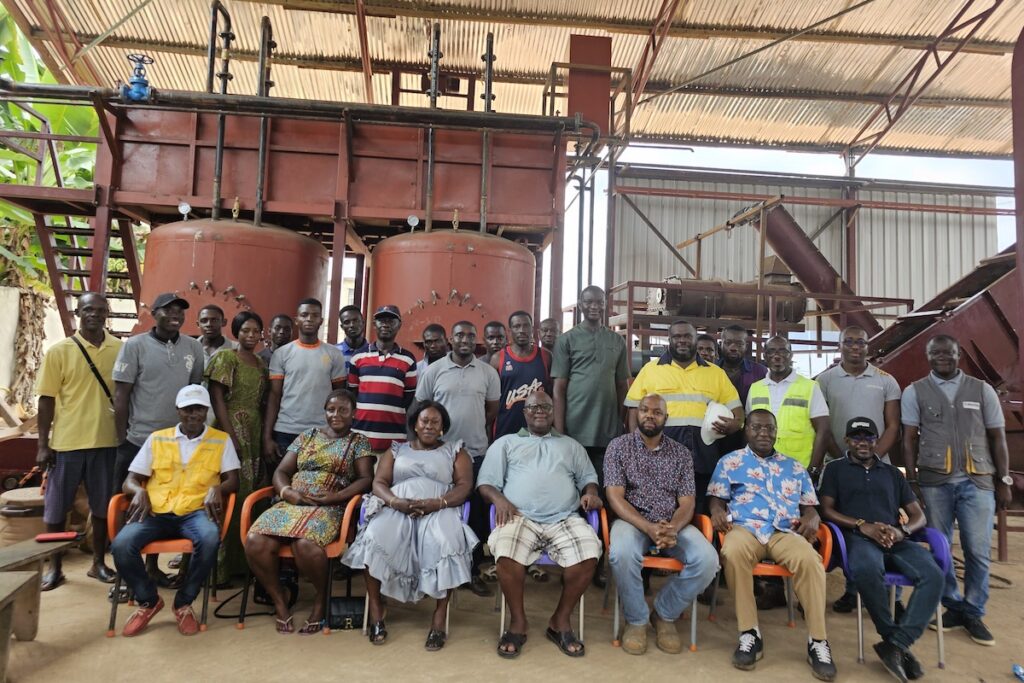
This is a transformational initiative that has redefined my business outlook. The processes are more efficient, safer, and faster.
Yaw Awusi Antwi, owner and manager of Joe Farms
Financing resources and emission reduction
Access to affordable and long-term financing for artisanal processors, who typically operate in rural areas, is often unavailable. Any available financing comes with high interest rates and for short terms. The high upfront costs and lack of financial resources mean that modernizing processing centres and adopting climate-friendly technologies are beyond the reach of most small processors.
Solidaridad is working with the support of the KliK Foundation to provide the necessary funding and technical assistance to overcome these barriers, enabling the processing centres to upgrade. Its contribution plays a critical role in removing financial and technical barriers during implementation of the Sustainable Artisanal Palm Oil Processing programme.
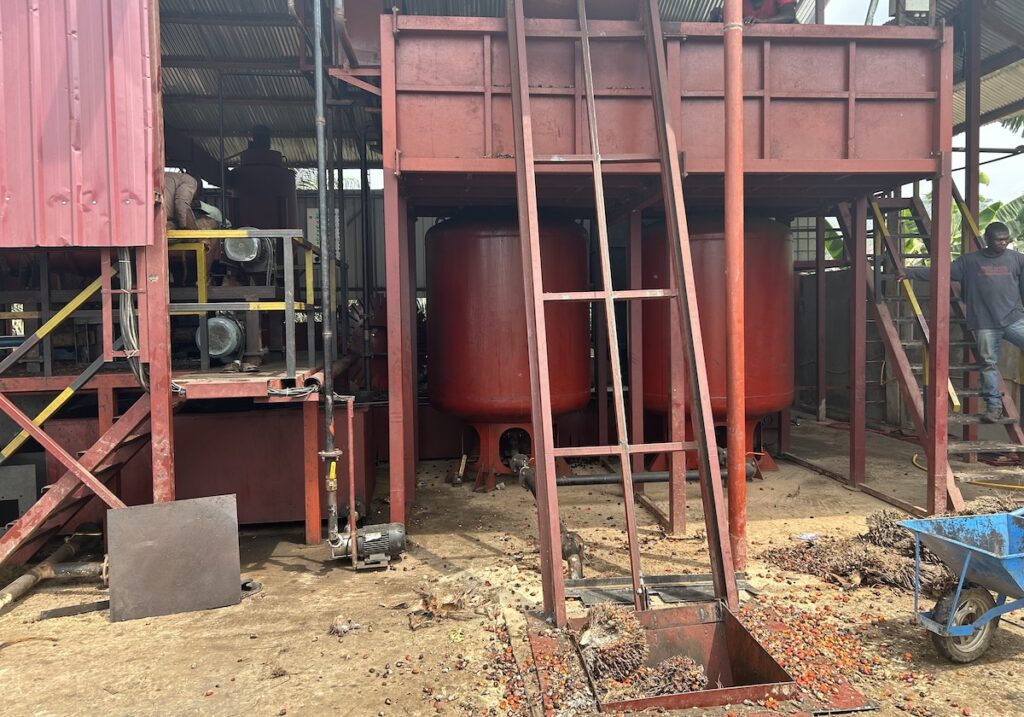
By providing investment support and helping monetize carbon credits generated through emission reductions, Klik offers a financing mechanism that makes the modernization feasible. The funds allow for the implementation of the mitigation activity that would otherwise be inaccessible to small-scale processors.
Additionally, the foundation’s involvement ensures that the activity is scalable and aligns with international carbon market frameworks.
Processing mills working to meet Ghana emission goals
Ghana aims to reduce greenhouse gas (GHG) emissions by 45 percent by 2030, as outlined in its 2016 Nationally Determined Contribution. The government plans to achieve a 15 percent reduction through measures like expanding low-carbon electricity and tree planting. To meet this target, Ghana will implement 18 actions in industry, energy, and forestry, all aligned with its sustainable development goals. The remaining 30 percent is dependent on international support.
“The Sustainable Artisanal Palm Oil Processing programme by Solidaridad West Africa will contribute to Ghana’s emission reduction goals once authorized,” said Paa Kwesi Forson, Programme Manager for NISCOPS.
The business model
The financing requirements are structured as result-based payments for Internationally Transferred Mitigation Outcomes (ITMO) delivery, which will be used to repay the loan and the interest from the partnering bank/investor.
“By cutting emissions at small oil palm processing centres, the programme will generate Internationally Transferable Mitigation Outcomes (ITMOs) to fund the mill upgrades. These upgrades will boost palm oil quality, increase incomes, and support local communities with better equipment and improved working conditions,” said Forson.
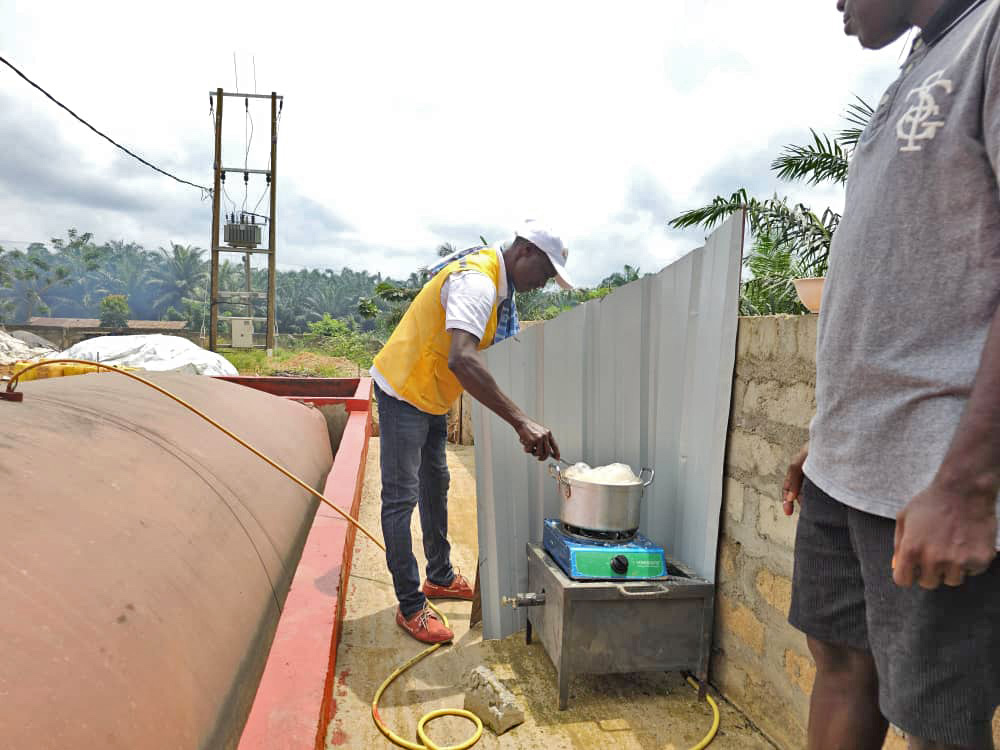
With the bank’s loan facility, the activity can be initiated by deploying the necessary funds to modernize the processing centres. The Sustainable Artisanal Palm Oil Processing programme ensures that this modernization is both feasible and appealing for the processing centres and the bank, or investor, providing the loan.
Greenhouse gas reduction and additional benefits
The programme and its emphasis on modern technology provides several benefits beyond reducing greenhouse gas emissions:
- The technology results in the production of biomass and methane gas that can be used for processing. Treated palm oil mill effluent (POME) produces organic fertilizer, which can be used to boost agricultural productivity.
- The technology significantly reduces the palm oil cooking time.
- The technology enhances the health and safety of workers by replacing the use of harmful fuel sources like spent tyres and firewood with clean biogas, reducing air pollution and associated respiratory issues.
- The technology improves oil extraction rates by over 18 percent, resulting in increased income for the processors who are primarily women.
Modernizing Ghana’s artisanal palm oil sector will transform traditional milling practices, reduce emissions, enhance efficiency and contribute to economic growth in local communities. The programme provides a valuable example of how palm oil processing can be environmentally and economically sound businesses.

